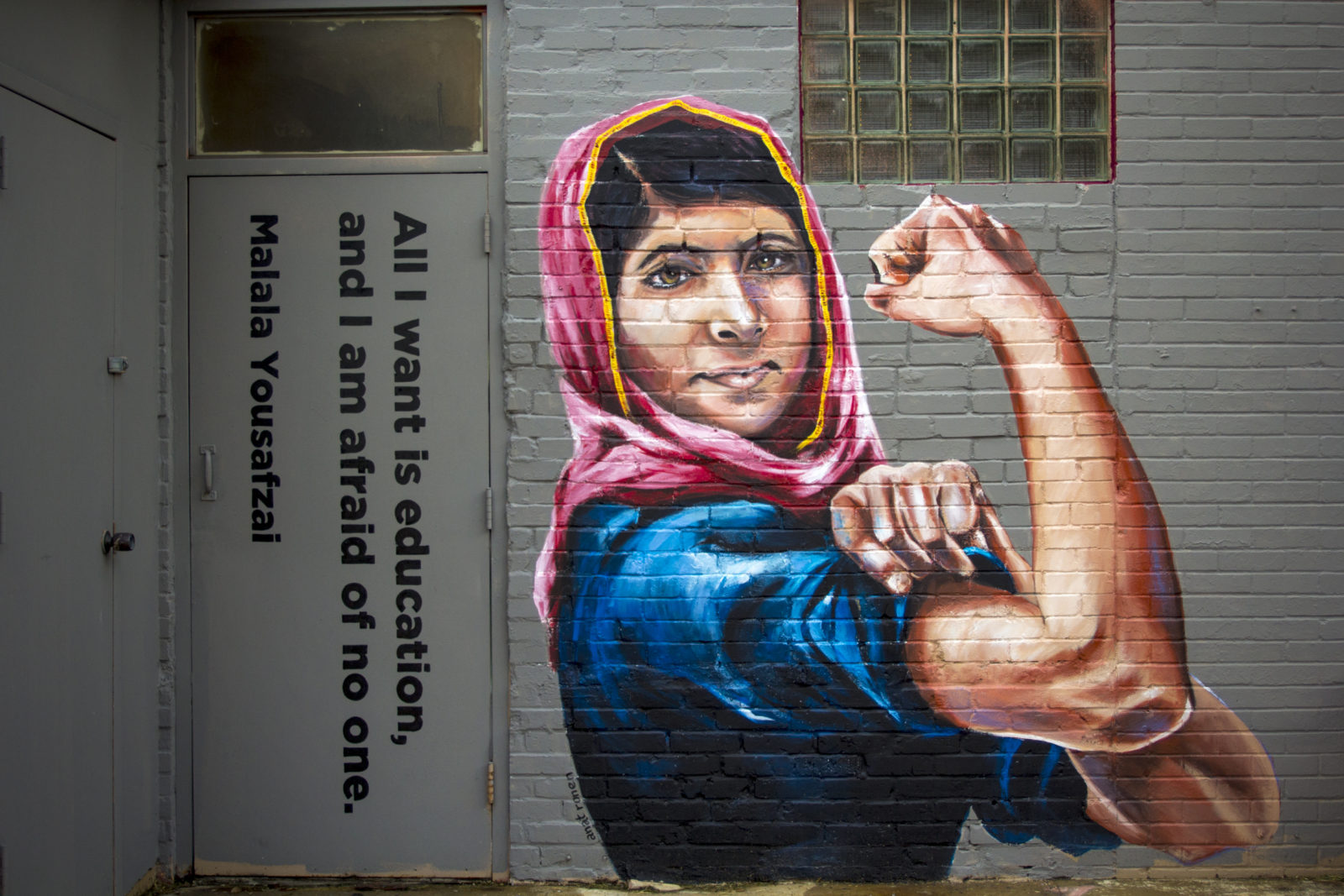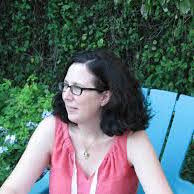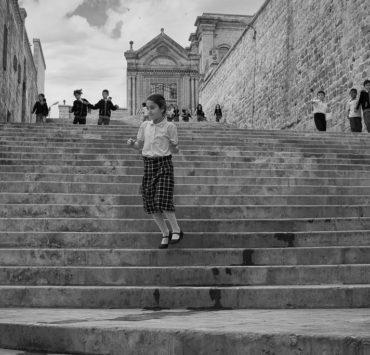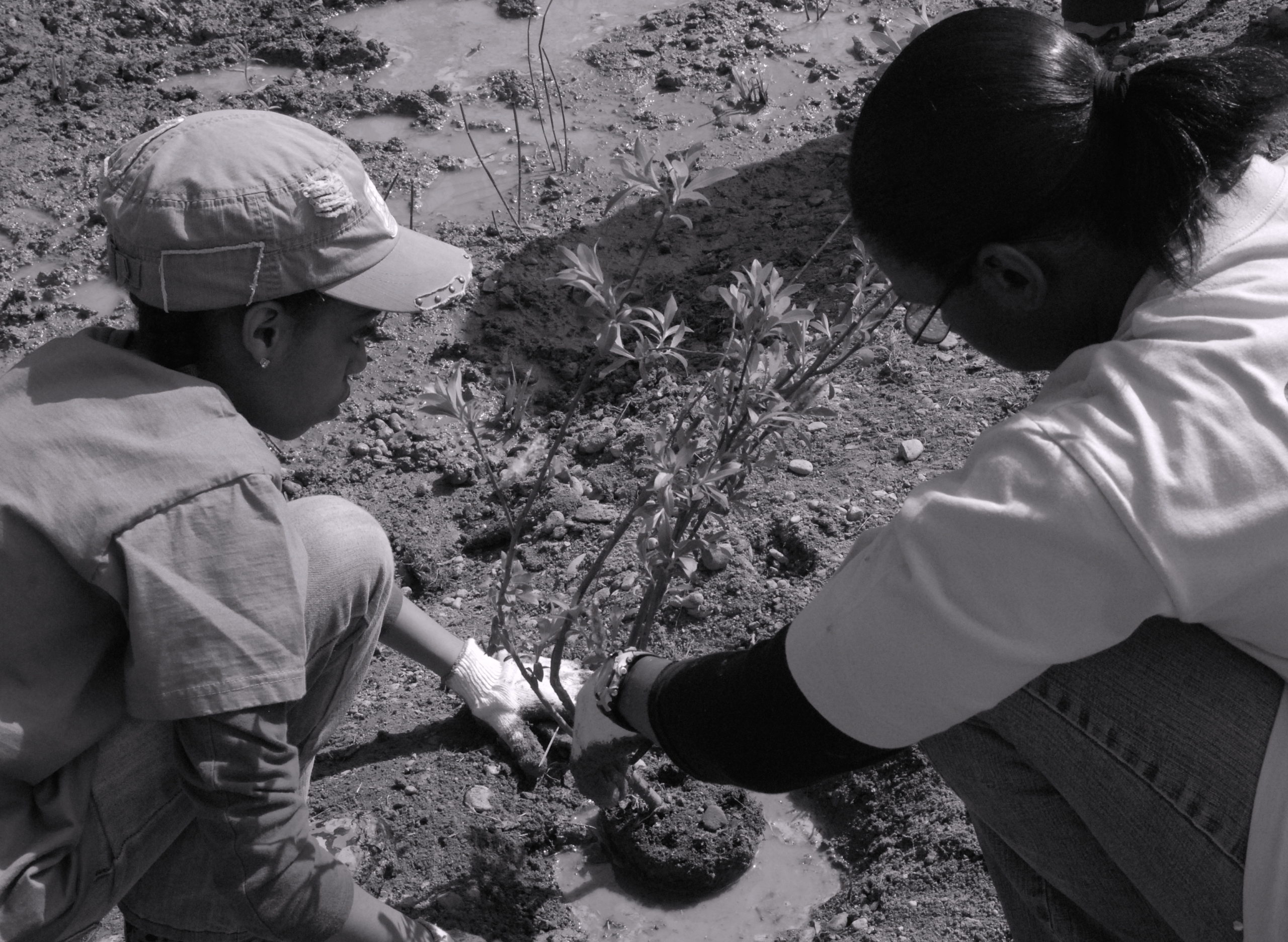
My grandmother was a reader, my great-grandmother was a reader, my mother is a reader, my sister-in-law is a reader, I am a reader, and my niece, age twelve, is a reader. So in the bookstore, shopping for gifts, she is told she can pick one book for herself. She chooses I am Malala, and my mother tells her, “Don’t buy that, I don’t like Malala.”
“Who doesn’t like Malala?” my niece shrieks when she tells me this story.
“She’s too much,” my mother says. “I don’t like her.”
I mean, really. Who doesn’t like Malala? But I know my mother well; I know what she means. She finds Malala both too perfect and too proud of her perfection.
Yet is that Malala, or is that who the world has asked Malala to be?
It’s hard to be a girl nowadays. How on earth do you nail the proper balance of humility and ambition, athleticism and femininity, rule-following and independence? How do you be both team player and team leader?
I ask my mother how she feels about Anne Frank. She pauses, then says, “I remember liking the diary.”
“I’m just wondering,” I say, “how a person who doesn’t like Malala, can like Anne Frank?”
“Oh!” my mother says. “Well, Anne Frank died.”
We both laugh—tragedy has never precluded comedy, of course.
A few years ago I published a short story called “ The History of Girls” about a group of Turkish schoolgirls who die in an explosion. I debated a long time over whether to call the story “A History of Girls” or “The History of Girls.” I was reluctant to claim such a thing as a single history, to claim I had written “the” history, but, in truth, that’s what I hoped I had done, it’s what I wanted to do.
The story evokes a long list of abuses that girls have suffered across time–a list that has only grown since, the latest addition an eight-year-old girl turned suicide bomber by Boko Haram. But the girls in my story were also strong. I wanted to tell the story of girls as all things.
I settled on “the” history because ours is a history of vulnerability and invulnerability. Because sometimes we are one, and sometimes we are the other. And we shouldn’t have to pretend otherwise.
Malala is a hero; we need not turn her into a saint.
The famous quote from Anne Frank’s diary is “in spite of everything I still believe people are good at heart.” But the line on which the diary actually ends, where fate ended it, is: “…if I’m quiet and serious, everyone thinks I’m putting on a new act and I have to save myself with a joke, and then I’m not even talking about my own family, who assume I must be sick, stuff me with aspirins and sedatives, feel my neck and forehead to see if I have a temperature, ask about my bowel movements and berate me for being in a bad mood, until I just can’t keep it up anymore, because when everybody starts hovering over me, I get cross, then sad, and finally end up turning my heart inside out, the bad part on the outside and the good part on the inside, and keep trying to find a way to become what I’d like to be and what I could be if …if only there were no other people in the world.” It’s such an honest line; it only makes me love her more.
But of course my family of readers loves Anne Frank; she is, in large part, a book. Not just a book, a great book. That the diary was found and preserved and published can make a non-believer doubt her non-belief. I am Malala, on the other hand, is the kind of book politicians write before they run for office—the origin story of Malala’s ideology. The voice is much more that of the co-writer, Christina Lamb, than it is of a teenage girl. But there’s nothing wrong with that. Malala wasn’t shot because she was an ordinary girl; she was shot because from the age of eleven she was an outspoken activist and a powerful threat to the Pakistani Taliban (something my mother didn’t know, by the way).
One of the reasons the diary of Anne Frank is so valued is because Frank was not the exception. Like my mother said, she died. She died like so many millions, and yet her story lives on. Malala is different. She is the exception, and her story is not yet finished. And what a joy it is when a girl gets to grow up, while the world waits to see what she will become.

Ayşe Papatya Bucak teaches in the MFA program at Florida Atlantic University. Her prose has been published in a variety of magazines, including Kenyon Review, Prairie Schooner, Creative Nonfiction, Brevity, and The Rumpus. Her short fiction has been selected for the O. Henry and Pushcart Prizes. She is a contributing editor for the literary journal Copper Nickel.







